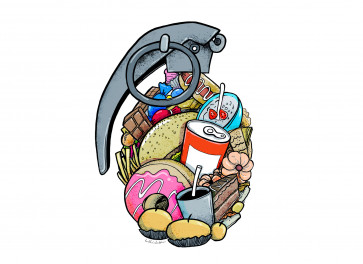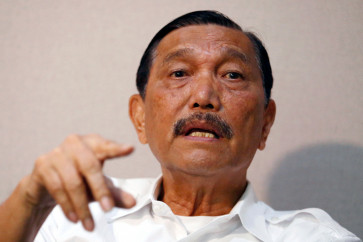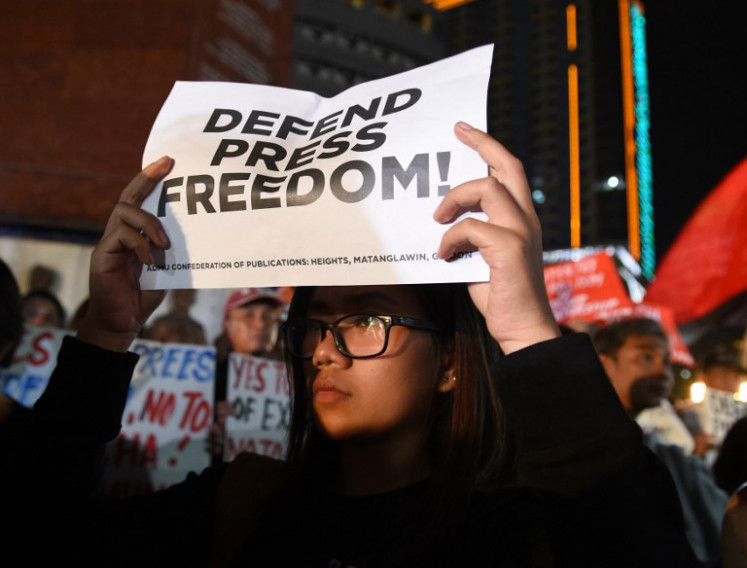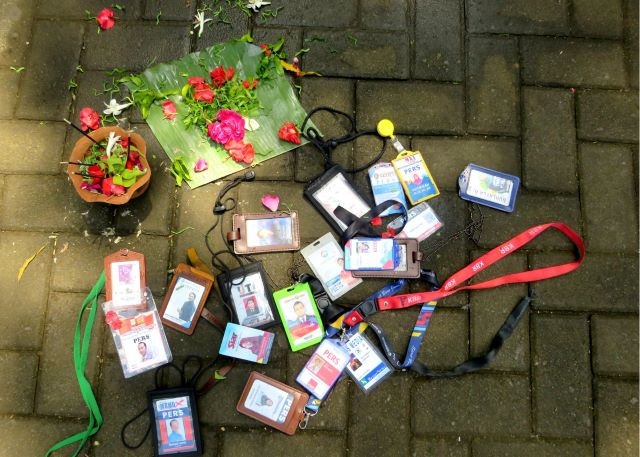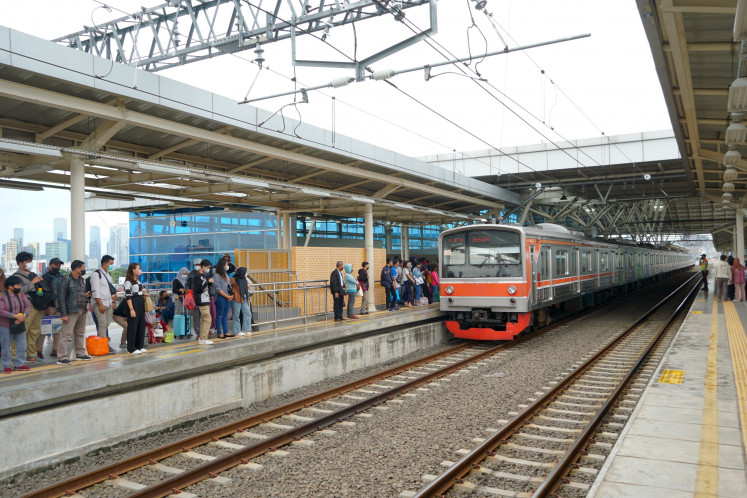House keeps problematic bills in Prolegnas, aiming to pass them by October
The House of Representatives, the Regional Representatives Council (DPD) and the government have agreed to keep the criminal code, correctional center and Pancasila ideology guidelines bills in the 2020 Prolegnas.
Change Size
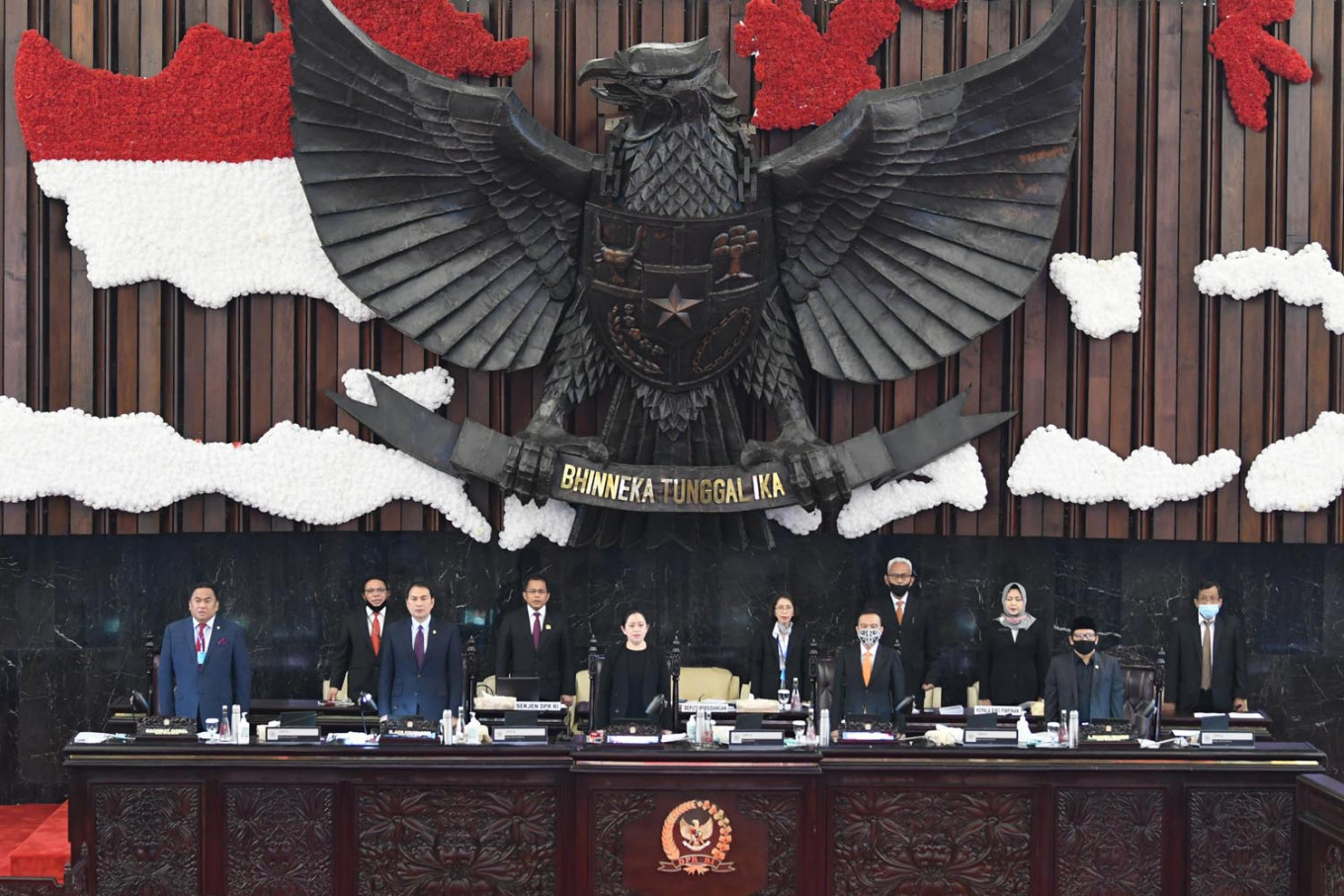 House of Representatives Speaker Puan Maharani (fifth left) and deputy speaker Rachmat Gobel (left), Azis Syamsuddin (third left), Sufmi Dasco Ahmad (fifth right) and Muhaimin Iskandar (second right) stand during a plenary meeting at the legislative complex in Senayan, Jakarta on June 15, 2020. (Antara/M Risyal Hidayat)
House of Representatives Speaker Puan Maharani (fifth left) and deputy speaker Rachmat Gobel (left), Azis Syamsuddin (third left), Sufmi Dasco Ahmad (fifth right) and Muhaimin Iskandar (second right) stand during a plenary meeting at the legislative complex in Senayan, Jakarta on June 15, 2020. (Antara/M Risyal Hidayat)
The House of Representatives has decided to proceed with the deliberation of controversial bills included on this year’s National Legislation Program (Prolegnas) priority list with a goal of passing them by October this year, while dropping several much-touted bills.
The House held a meeting with the government and the Regional Representatives Council (DPD) on Thursday, in which they agreed to revise the priority list, citing the House’s limited capacity to deliberate all the bills included on it.
“Some bills excluded from the Prolegnas can still be proposed to be included on next year’s priority list, which will be deliberated in October,” House Legislative Body (Baleg) chairman Supratman Andi Agtas of the Gerindra Party said upon chairing Thursday’s meeting.
Law and Human Rights Minister Yasonna Laoly said the list had to be evaluated because the priority list was unrealistic following the COVID-19 pandemic. "This has always been a debate. Our capacity is far from the target.”
There were 50 bills on the 2020 Prolegnas priority list. The legislative bodies and the government decided to drop 16 of them, while adding three more: the national development planning system, judges tenure and prosecutor bills.
Among the bills that were kept on the list were the omnibus bill on job creation, as well as the criminal code, correctional center and Pancasila ideology guidelines (HIP) bills. Deliberations for the last three bills are still awaiting approval from the government.
Lawmakers of House Commission III overseeing legal affairs had previously urged the government to resume deliberation of the controversial revisions to the Criminal Code and the 1995 Correctional Center Law, despite the ongoing COVID-19 outbreak and public disapproval.
Deliberation of the criminal code and the correctional center bills was postponed last September following massive student protests in Jakarta and other regions, who demanded the bills be rejected for their threat against democracy and civil rights.
Among problematic provisions in the Criminal Code revision were articles that critics fear would overcriminalize activities in the personal domain, such as cohabitation and consensual sex between unmarried people.
Meanwhile, the current draft of the correctional center bill contains provisions that would remove prevailing regulations that stipulate strict criteria for issuing remissions and parole for prisoners convicted of extraordinary crimes, including terrorism and corruption.
Read also: Govt opts to postpone deliberation of controversial bill on Pancasila amid backlash against House
Deliberation of the HIP bill, which was proposed by the nationalist Indonesian Democratic Party of Struggle (PDI-P), was also recently blocked thanks to a coordinated campaign by Muslim organizations and Islamist political parties at the House.
Parties opposing the Pancasila bill argued that it would lead to the reemergence of communism in the country due to its provisions saying that state ideology Pancasila will have three basic characteristics called trisila (three principles) consisting of socionationalism, sociodemocracy and cultural divinity. All three values would then be crystalized in ekasila (one principle) of gotong royong (mutual cooperation).
Several lawmakers questioned the decision to keep the problematic bills, while others supported the decision to continue prioritizing them.
Mulyanto of the Prosperous Justice Party (PKS) said the HIP bill should not be included on the priority list as the government had opted to postpone its deliberation amid outcry from the public who questioned its urgency and some of its contentious articles.
Supratman responded that the Baleg could not do anything about the HIP bill as they were waiting for the government’s official response. “We should wait for the House leadership’s decision. We’ve also sent the bill’s draft to the President.”
On the other hand, lawmakers supporting the deliberation of the problematic bills cited the recent passing of a controversial revision to the Coal and Mineral Mining Law as an “inspiration” for the commission to pass them.
Indonesian Parliament Watch (Formappi) researcher Lucius Karus said the decision to withdraw some bills from the Prolegnas was questionable as the House still had until the end of the year. The withdrawal, he said, was just a sign of the House's inability to do its job.
"They're also inconsistent. They drop some bills but add several new bills at the same time," he said. "It is also possible that such revisions carried out amid the COVID-19 pandemic show the House’s eagerness to pass the controversial bills that are in their personal or group interest."
Lucius also questioned the House's awareness of what the public wanted, as it dropped bills that people had been hoping for, particularly the sexual violence bill.
Center for Policy and Legal Studies (PSHK) researcher Fajri Nursyamsi said the revision to the House’s Prolegnas was not so shocking as the legislative body had always been too ambitious and set its target too high since the beginning.
He went on to say that the House should assess its ability to pass bills in line with the government’s goals. "A Prolegnas should be based on our development goals, such as the RPJMN [National Medium-Term Development Plan]. However, we've seen the list is often unrealistic."
Read also: Activists, survivors step up campaign for sexual violence bill after another delay
The wiretapping and marine security bills were also replaced by the Bank Indonesia and continental shelf bills.
NasDem Party’s Taufik Basari questioned the decision to withdraw the sexual violence bill from the priority list, which had caused public outcry.
National Commission on Violence Against Women (Komnas Perempuan) commissioner Mariana Amiruddin said the House had shown no concern for the victims of sexual violence by delaying the bill’s deliberation. Moreover, many Twitter users were enraged at the House’s excuse that the bill was “complicated”.
Supratman said the withdrawal was due to overlapping criminal provisions with the criminal code bill, the deliberations of which had been delayed since September last year. At that time, students held massive protests in several regions across the country, demanding the bills be rejected for being a threat to democracy.
“We hope we can include the sexual violence bill in the Prolegnas after we pass the Criminal Code bill,” he said.

